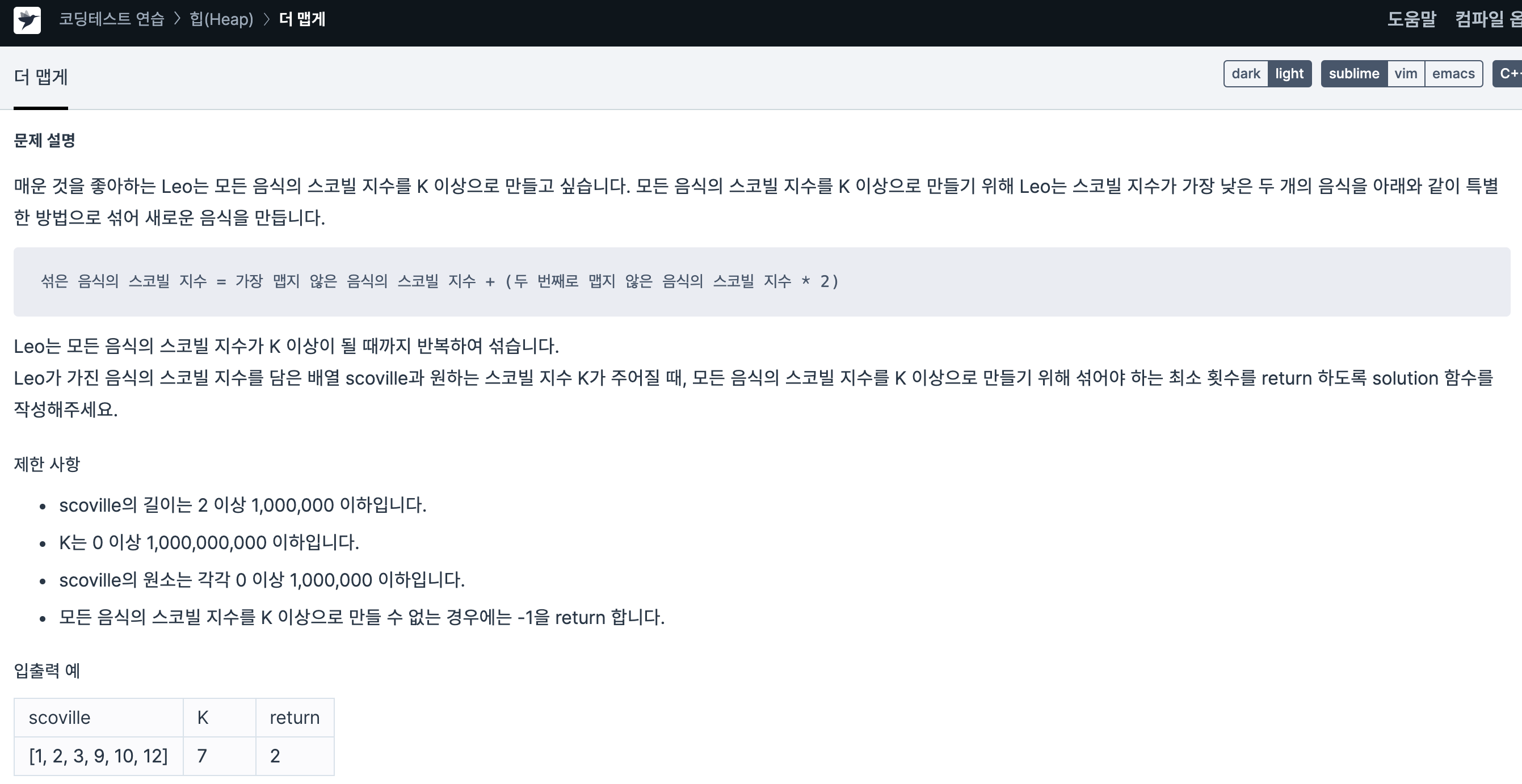
https://programmers.co.kr/learn/courses/30/lessons/42626#

문제 풀이
문제 자체는 엄청 쉬운데 우선순위큐를 오름차순 하는 법을 잘 몰라서 구조체를 사용했다. 찾아보니 다른 방법도 있다...!
구조체 priority_queue를 만들고, 이때 구조체는 scoville 기준 min heap이 되도록 하였다.
입력 벡터에 있는 모든 scoville값을 priority_queue에 push하여 자동 정렬되도록 하고
while문 안에서
top 두 개를 하나씩 꺼내고, 새로운 음식을 만들어서 push했다.
이때, top의 scoville값이 K보다 크면 다른 모든 음식도 모두 만족하기에 break;
또한 while문은 pq.size()>1 일 때까지만 돈다! (2개가 있어야 새 음식을 만들 수 있음)
코드
#include <string>
#include <vector>
#include <queue>
#include <iostream>
using namespace std;
struct Food{
int scoville;
Food(int a){scoville=a;}
bool operator<(const Food &b)const{
return scoville>b.scoville; //작은 게 top에!
}
};
int solution(vector<int> scoville, int K) {
int answer = 0;
priority_queue<Food> pq;
for(auto sc:scoville){pq.push(Food(sc));}
bool flag=0;
while(pq.size()>1){
int food1=pq.top().scoville; pq.pop();
int food2=pq.top().scoville; pq.pop();
pq.push(Food(food1+2*food2));
answer++;
if(pq.top().scoville>=K) {flag=1; break;}
}
if(!flag) answer=-1;
return answer;
}프로그래머스 다른 풀이
#include <vector>
#include <queue>
using namespace std;
int solution(vector<int> scoville, int K) {
int answer = 0;
int needHot;
priority_queue<int,vector<int>,greater<int>> pq (scoville.begin(),scoville.end());
while(pq.top()<K) {
if(pq.size()==1) return answer = -1;
needHot=pq.top(); pq.pop();
pq.push(needHot+pq.top()*2);
pq.pop(); answer++;
}
return answer;
}priority_queue<int,vector<int>,greater<int>> pq (scoville.begin(),scoville.end());
priority_queue 두 번째, 세 번째 인자를 지정해줌으로써 오름차순 정렬이 되도록 하고 선언과 동시에 바로 scoville 벡터를 넣어준 모습!
👽 우선순위 큐의 오름차순 내림차순
priority_queue<int, vector<int>, greater<int>> pq1; //오름차순
priority_queue<int, vector<int>, less<int>> pq2; //내림차순
